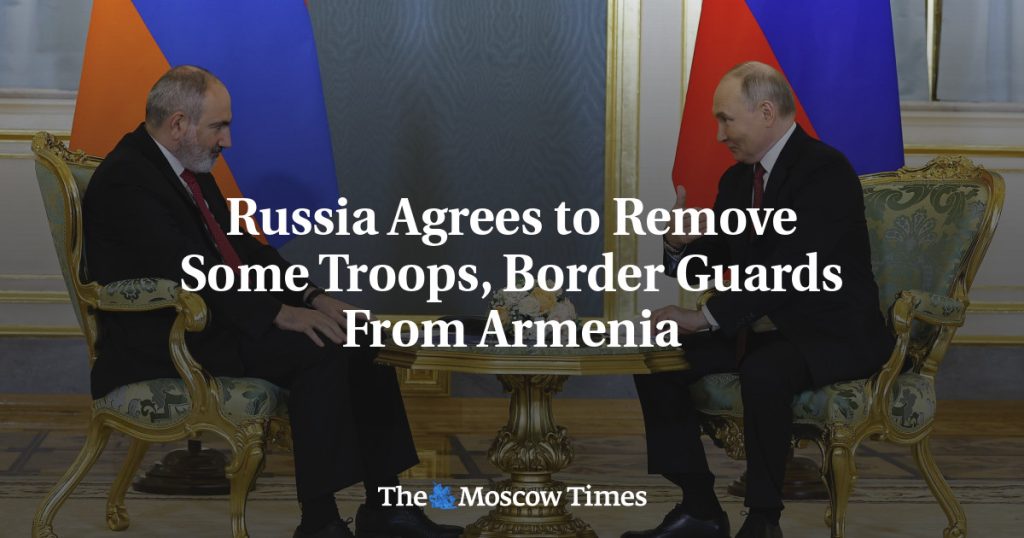Russia has agreed to withdraw some of its troops and border guards from Armenia after tensions between the two countries escalated. Armenia, a traditional partner of Moscow, had expressed anger that Russian peacekeeping forces did not intervene during Azerbaijan’s offensive to retake the Nagorno-Karabakh region. Russian President Vladimir Putin met with Armenia’s Prime Minister Nikol Pashinyan in Moscow, where they agreed on the withdrawal of some Russian troops from Armenia’s territory. The Kremlin confirmed the decision, stating that the move came at Armenia’s request due to changed conditions, and Russian guards would remain on Armenia’s borders with Turkey and Iran.
The agreement between Russia and Armenia involves the withdrawal of Russian military and border posts from five Armenian regions following a six-week war with Azerbaijan in 2020. However, the deal does not impact Russia’s significant military base in the Armenian city of Gyumri, which is home to around 3,000 troops. The two countries are part of the Moscow-led Collective Security Treaty Organization (CSTO), a mutual defense pact, although Armenia indicated that it had effectively suspended its participation amid the tensions with Russia.
Armenia’s decision to join the International Criminal Court (ICC) earlier this year raised concerns as it obliges the country to arrest Putin if he ever sets foot on Armenian territory under an ICC warrant issued for the Russian leader on war crimes charges. This move further strained the relationship between Armenia and Russia, prompting Yerevan to take actions to distance itself from Moscow. The withdrawal of some Russian troops and border guards from Armenia is seen as a step towards easing tensions between the two ex-Soviet allies.
Russia’s military presence in Armenia has been a contentious issue, with some Armenian officials calling for the removal of Russian forces from the country. The agreement to withdraw some troops comes after months of escalating tensions and disagreements between the two countries, particularly regarding the conflict in Nagorno-Karabakh. The decision to keep Russian guards on Armenia’s borders with Turkey and Iran suggests that Moscow still aims to maintain a presence in the region and ensure security cooperation with Yerevan.
Overall, the withdrawal of Russian troops from Armenia signifies a significant shift in their bilateral relationship and could help to alleviate some of the tensions that have been brewing for months. The agreement between Russia and Armenia reflects a willingness to address the concerns and grievances raised by Yerevan while maintaining certain security arrangements. It remains to be seen how this withdrawal will impact the broader geopolitical dynamics in the region and whether it will lead to a more stable and cooperative relationship between the two ex-Soviet allies in the future.


